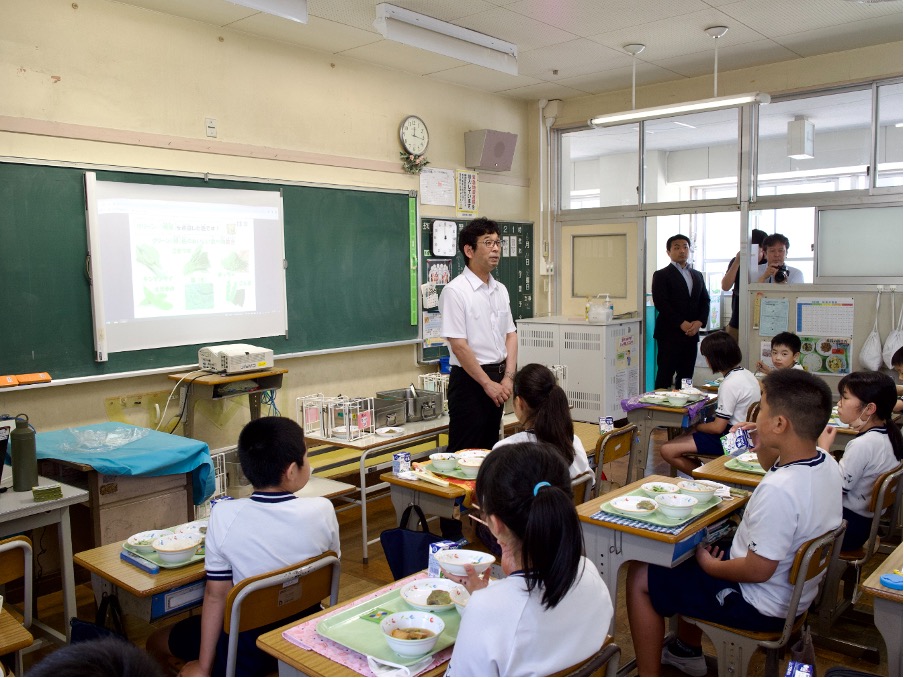Tokyo, Japan – As concerns over global food security grow due to climate change and geopolitical risks, a Japanese company based in Ishinomaki, Ibis Algae, is pioneering an innovative food education program in collaboration with Fukuroi City in Shizuoka Prefecture. The program aims to introduce algae as a nutritional superfood into school lunches, encouraging local schoolchildren to embrace it as a regular part of their diet.
Algae, a rich source of protein, vitamins, and minerals, has been consumed by humans since ancient times. Now, it is gaining attention as a potential solution to address future food shortages, with experts warning of a potential “protein crisis” by 2050.
In response, the food tech industry is accelerating efforts to develop and commercialize alternative nutritional sources, including environmentally friendly innovations such as soybean-based meat substitutes and edible insect farming. Algae is emerging as a prominent candidate for human consumption.
Ryoji Terai, the President of Ebis Algae, believes that algae will soon become a primary source of nutrition. Terai’s “Green School Lunch” program was launched in Fukuroi, serving 9,250 meals incorporating algae at 28 elementary and junior high schools, kindergartens, and preschools. The children particularly enjoyed dishes like “fried black fish cake with algae.”
The program featured microalgae from the nannochloropsis genus, known for its high protein content and substantial eicosapentaenoic acid (EPA) levels. EPA is an omega-3 fatty acid effective in thinning the blood and preventing heart disease, arteriosclerosis, and strokes.
While microalgae have been adopted in the food and beverage sector globally for their omega-3 fatty acids and protein content, Terai claims that his company is the first in the world to incorporate algae into school lunches. Surprisingly, many students asked for seconds, comparing the taste to green laver seaweed, a popular food in Japan and other East Asian countries.
The success of the algae-infused meals has prompted Fukuroi to make them a regular part of its school menus. Ebis Algae plans to expand its projects across Japan, starting in its home region of Ishinomaki in northeastern Japan. The company possesses unique technology for large-scale cultivation of nannochloropsis and is collaborating with major food manufacturer Kyokuyo to develop nannochloropsis-based products.
The global market for microalgae is rapidly expanding, projected to reach a valuation of US$25.4 billion in 2023, as it finds applications not only in food but also in pharmaceuticals, cosmetics, biofuels, and more.
As the world grapples with growing food security concerns, innovative approaches like introducing algae superfoods into school lunches may play a crucial role in ensuring a sustainable and nutritious future for all.

